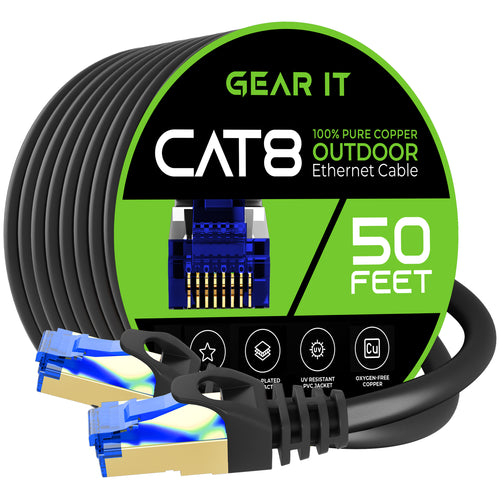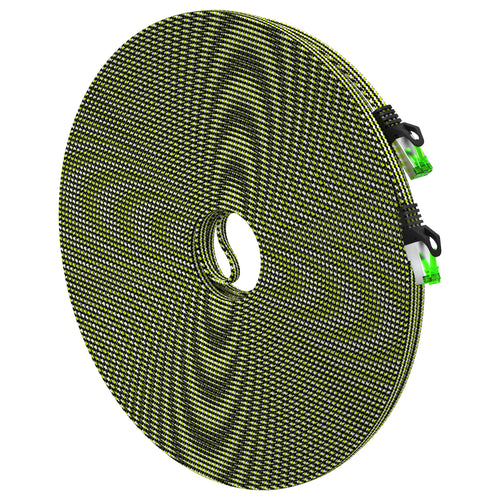Wondering if fiber optic is better than cable for your internet needs? You're not alone. Many people want to know if switching from cable to fiber will make a difference in speed and reliability.
Fiber optic internet generally offers faster speeds and more reliability compared to cable internet. It's especially important if you need seamless connections for work, gaming, or streaming. Understanding the differences can help you make the best choice for your home.
What Is Fiber Optic Internet?
Fiber optic internet uses light to send data through thin, flexible glass or plastic cables. This technology provides high-speed internet with great reliability.
Key Features:
-
Speed: You can enjoy fast downloads and uploads.
-
Reliability: Less likely to experience downtime or slow speeds.
-
Capacity: Can handle multiple devices at once.
Fiber internet is a powerful choice for anyone needing a stable and swift connection.
What Is Cable Internet?
Cable internet is a type of broadband connection that uses coaxial cables to deliver data. These are the same cables used for cable TV. They transmit data quickly and are widely available in many areas.
How It Works:
-
Coaxial cables connect your home to a local service provider.
-
Data travels through these cables using electrical signals.
-
It reaches your modem, allowing devices in your home to access the internet.
Common Uses and Popularity:
-
Streaming videos
-
Online gaming
-
Browsing the web
Many people choose cable internet for its reliability and moderate speeds. You can often find it offered by local cable TV providers. This makes cable broadband accessible to a large population.
Cable internet can be a good option if you need a stable connection without needing the highest speeds.
Is Fiber Optic Better Than Cable for Speed?
If you're wondering, "Is fiber optic better than cable for speed," the answer is a resounding yes. Fiber optic internet can provide speeds up to 1 Gbps or even higher. In contrast, cable often maxes out at a lower speed. This makes fiber superior in many situations.
Advantages of Fiber Optic:
-
Consistent Speeds: Fiber maintains high speeds even during peak usage.
-
Streaming and Gaming: Offers smoother streaming and lag-free gaming.
-
Large File Uploads: Faster uploads make sharing easier.
Fiber's speed and reliability are due to its use of light to transfer data, unlike cable's electrical signals. Light travels faster and is less likely to be interrupted, offering a better internet experience for demanding tasks.
Is Fiber Optic Better Than Cable for Reliability?
Fiber optic internet is generally more reliable. It's less affected by weather conditions like rain or snow, which can disrupt services.
Cable internet shares bandwidth with neighbors. This can cause slowdowns during peak times.
Fiber optics are also immune to electromagnetic interference, leading to fewer outages.
If you rely on the internet for working from home or need steady video calls, fiber might be the better choice.
Consider the following advantages of fiber optics:
-
Uninterrupted video calls
-
Consistency during peak hours
-
Stable work-from-home setups
These benefits make fiber a solid choice for those needing a dependable connection. For more information, you can read about how fiber optic cables are less prone to outages.
Cost Comparison: Fiber Optic vs. Cable
When looking at internet options, cost is a crucial factor. Here's how fiber optic and cable compare in terms of expenses.
Installation Costs
-
Fiber Optic: Installing fiber optic can be more expensive initially due to the high cost of laying fiber lines.
-
Cable: Cable installation is generally less costly because the infrastructure is already widespread.
Monthly Fees
-
Fiber Optic: Monthly fees usually range between $50 and $100 for speeds up to 1 Gbps.
-
Cable: Generally cheaper, monthly costs usually fall below fiber but may vary based on speed and provider.
Ongoing Maintenance
-
Fiber Optic: Requires less maintenance over time, as fiber is resistant to corrosion and damage.
-
Cable: Copper cables used in cable internet may require more frequent upkeep.
While initial costs for fiber optic may be higher, in the long run, fiber offers better value, especially for heavy internet users or those planning to stay at the same address. It is wise to weigh these cost factors against your budget and internet usage needs.
Fiber Optic vs. Cable: Availability
When choosing internet options, availability is key. Cable internet is often found in both urban and rural areas. This is because cable relies on existing infrastructure like TV cables, which are already widespread. Most homes can access cable internet, making it more common.
Fiber optic, on the other hand, is spreading but at a slower pace. Many urban areas may have access to fiber optic internet, but rural regions might still be waiting. Laying new fiber lines can be tough and costly, which slows expansion.
In cities, fiber might cover a neighborhood, but availability could be limited to specific streets. Cable, with its established presence, often has broader coverage. If you're in a city, checking local providers can show if fiber is an option for you.
While fiber optic promises higher speeds, cable remains a reliable choice due to its greater reach. If you're considering switching, look into both options based on where you live. Knowing the availability will help determine what service suits your needs best.
Is Fiber Optic Better Than Cable Overall? Final Verdict
When it comes to speed, fiber optic is usually faster than cable. It can reach speeds between 250 and 1,000 Mbps, which is often faster than cable connections.
Reliability is another area where fiber optic shines. Since it uses light to send data, it’s less prone to interference than cable, which can be affected by things like bad weather.
Cost can be a concern. Cable is usually cheaper than fiber internet, making it an attractive option if you want to save money.
Availability might also affect your choice. Fiber is not yet available everywhere, while cable is more widely accessible.
For most users, fiber optic is better than cable due to its superior speed and reliability. However, you should think about your personal needs, budget, and location when choosing the best option for you.
Frequently Asked Questions
Fiber optic internet offers faster speeds and more reliable service compared to cable. It can sometimes be more expensive, but its benefits often justify the cost. Access in rural areas can vary, but advancements are being made.
How fast is fiber optic compared to cable?
Fiber optic internet is much faster than cable. It can offer speeds ranging from 100 Mbps to over 50,000 Mbps, which is ideal for streaming and gaming. In contrast, cable internet typically provides slower speeds.
Is fiber optic more expensive than cable?
Fiber optic can be pricier than cable. The cost depends on your location and the provider. While initial prices might be higher, many find the speed and reliability worth the expense.
Can I get fiber optic internet in rural areas?
Getting fiber optic internet in rural areas can be a challenge. Availability depends on where you live. Some companies are expanding their networks, so it's possible that availability will improve in the future.
Does fiber optic improve WiFi?
Using fiber optic doesn't directly make WiFi faster, but the high speeds can enhance your WiFi performance. You'll experience less buffering and quicker downloads, especially if you have a good router.
Is fiber optic faster than wire?
Fiber optic cables offer higher speeds than traditional wire cables. The technology uses light signals to transfer data, which allows for quicker and more reliable connections, especially over long distances.
Read Related Articles 🔎:





















































